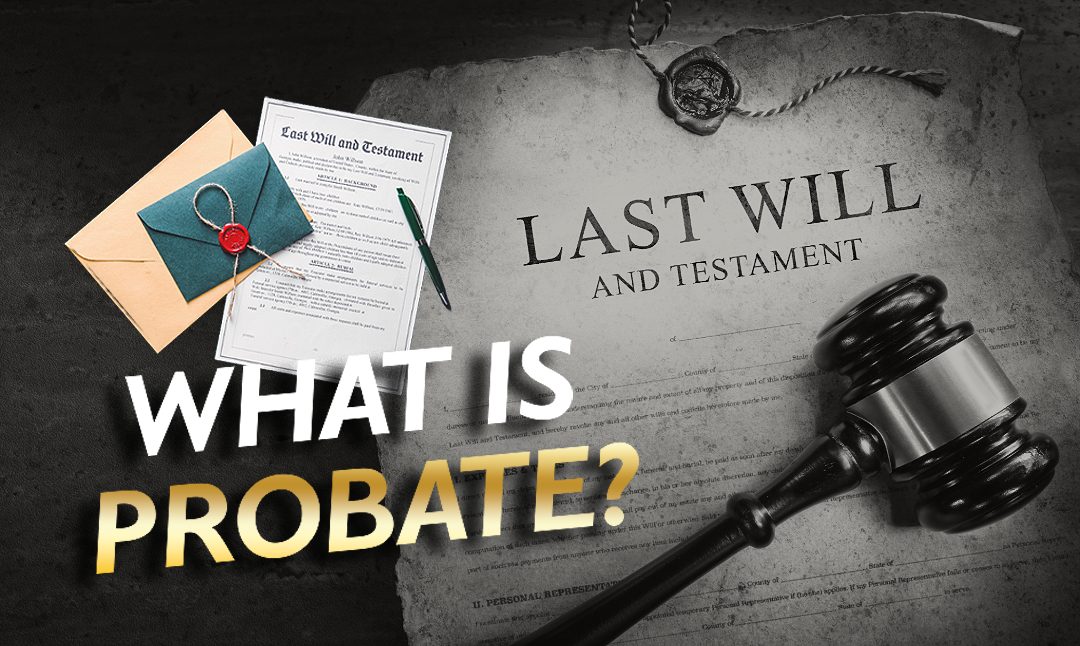
When is probate necessary?
Probate is typically necessary when a person dies with assets solely in their name. Assets that are jointly owned or have designated beneficiaries usually don’t go through probate. However, if the deceased person had real estate, bank accounts, or investments solely in their name, probate is usually required to transfer those assets to beneficiaries. Those beneficiaries are generally listed in a will and will list their legal heirs but validity does come into play when there is an established will.
How to file and validate a will
To start the probate process, the deceased person’s will must be filed with the probate court in the county where they lived. The court will then validate the will and appoint an executor or personal representative to handle the decedent’s estate.
What exactly has to go through probate court?
Assets that typically go through probate include real estate, bank accounts, investments, vehicles, and personal belongings owned solely by the deceased person.
The Probate Process
The probate process involves several steps, including:
Validating the will
Identifying and inventorying the deceased person’s assets
Notifying creditors and paying off debts
Distributing the remaining assets to beneficiaries according to the will or state law if there’s no will.
What Does Not Have to Go Through Probate Court
Assets that don’t have to go through probate include those held in a living trust, jointly owned property with rights of survivorship, retirement accounts with designated beneficiaries, and life insurance proceeds with named beneficiaries.
How Does the Probate Process Work?
Once the court validates the will and appoints an executor, the executor is responsible for managing the estate’s assets, paying off debts and taxes, and distributing assets to beneficiaries.
Advantages and Disadvantages to Probate
Advantages of probate include providing a legal process for transferring assets and resolving disputes, while disadvantages include the potential for delays and costs associated with the process.
Contacting Creditors and Paying Off Debt
During probate, the executor must notify creditors of the deceased person’s death and pay off any outstanding debts using estate assets.
Distribute Remaining Assets
Once debts and taxes are paid off, the remaining assets are distributed to beneficiaries according to the terms of the will or state law.
How to Avoid Probate
There are several ways to avoid probate, including setting up a living trust, designating beneficiaries on retirement accounts and life insurance policies, and holding property jointly with rights of survivorship.
Joint ownership
Property held jointly with rights of survivorship automatically passes to the surviving owner(s) without going through probate.
Pay All Fees and Debts of the Deceased
Before distributing assets to beneficiaries, the executor must pay off any outstanding debts and fees owed by the deceased person.
How long does probate take?
The duration of probate varies depending on factors such as the size and complexity of the estate, whether the will is contested, and state laws. It can take anywhere from a few months to several years to complete the probate process.
Which assets avoid probate?
Assets that avoid probate include those held in a living trust, jointly owned property with rights of survivorship, retirement accounts with designated beneficiaries, and life insurance proceeds with named beneficiaries.
How long do you have to file probate after death?
The deadline for filing probate after death varies by state but is typically within a few months to a year after the person’s passing. It’s essential to consult with an attorney to ensure compliance with state laws and deadlines.
Why do I need an attorney to assist with probate?
Probate can be a complex legal process involving various steps such as filing paperwork, notifying creditors, managing assets, and distributing property according to the deceased person’s will or state law if there’s no will.
Here’s why having an attorney can be beneficial:
- Legal Expertise: Probate laws can be intricate and vary from state to state. Attorneys specializing in probate law are familiar with these laws and can navigate the process efficiently.
- Document Preparation: Probate involves a lot of paperwork, including petitions, notices, and inventories. An attorney can ensure that all necessary documents are correctly prepared and filed with the court.
- Representation in Court: If there are disputes or challenges during the probate process, having an attorney provides you with representation in court. They can argue on your behalf and protect your interests.
- Minimize Delays: Mishandling probate proceedings can lead to delays, which can prolong the distribution of assets to beneficiaries. An attorney can help streamline the process and avoid unnecessary delays.
- Dealing with Creditors: Creditors may file claims against the estate during probate. An attorney can review these claims, negotiate settlements if necessary, and ensure that the estate’s assets are protected.
- Tax Implications: Probate can have tax implications, including estate taxes and income taxes. An attorney can advise you on tax matters and help minimize the tax burden on the estate.
- Peace of Mind: Dealing with the death of a loved one is already stressful enough. Hiring an attorney to handle probate can provide you with peace of mind, knowing that a knowledgeable professional is managing the legal aspects of the process.
While you’re not legally required to hire an attorney for probate, their expertise can save you time, reduce stress, and ensure that the process is handled correctly. That is why you should call Demesmin and Dover Law Firm. Our probate attorneys can assist you in ensuring that the assets are allocated properly. So call today for your free consultation.


